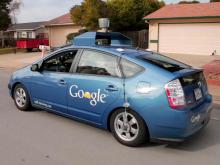Driving

I had, for a long time, believed that driving was one of the leading causes of preventable death, but a Quora post made me realize that driving kills about 30,000 people per year in the US, which is much smaller than I had thought.
I did some math (below) and found that there is about a 1 in 200 chance of the average driver dying due to driving their car.
Then comes the question: given that statistic, is it rational to drive? To answer that question, we need a common unit of measure. Given that I'm clearly anticapitalist, let's use money.
We have to answer two questions: how much do you value your life, and how much do you value driving? Or, more specifically, (1) How much would someone have to pay you for you to accept a 1 in 200 chance of death? (2) How much would someone have to pay you for you to give up driving forever? Since people aren't rational (and money isn't linearly correlated with value, if you want to be smart about it), I'll ask those same questions in a different way, too. (1) How much would you pay for someone to remove a 1 in 200 chance of death? (2) If you had your license permanently revoked, how much would you pay to get it back?
If you answer to (1) is greater than your answer to (2), then it is irrational for you to drive. If your answer to (2) is greater than your answer to (1), then keep on truckin'.
To answer question (1), if I am completely altruistic and don't value my life for its own sake, then the worth of my life depends on how many lives I could save, which, assuming I don't invent anything cool or start any cool companies, is a function of money. Because I'm irrationally optimistic, let's say that I might generate $50,000,000 for charity in my lifetime. Then, for a 1 in 200 chance of death, I should accept one two hundredth of that, or $250,000. To answer question (2), I think that if my driver's license cost $50,000, I probably would never get it. Thus, because $250,000 (the value I would lose from driving) is greater than $50,000 (the value I would gain from driving), it would be irrational for me to drive.
I expect that other people will have vastly different numbers for both questions. I expect that poor people will accept less money to give up driving because money is more important. I also expect that most people would give (irrationally) higher numbers for the value that they place on their own life.
Also, some people might argue that the 1 in 200 chance is the chance of dying some time in your life rather than instantly. That's true, but it doesn't refute my logic. If I die at any point in time, it means that I lose all of the value from the rest of my expected life, whereas the value gained from driving happens over time. In other words, if I get my license tomorrow and then die, I only get one day's worth of value from driving, and I lose $50,000,000 of value. Also, as a young, male, inexperienced driver, I am more likely to die from driving than I will be later. Thus, the numbers are most favorable to the pro-driving camp if you consider them, as I have, as a lifetime chance.
As an aside, my number for how much I value my life actually matches the data for how much an average person, if you judge by their actions rather than their words, values their life. If you go by words, though, the numbers are much higher. See, for instance, Microrisks for Medical Decision Analysis.
Driving also contributes to global warming, which is really bad.
And if I expect that autonomous cars will become both affordable and legal within a couple of decades, there's even less of a reason to drive.
Math on the 1 in 200 number
30k deaths per year in the us / 300m people in the US = 1 in 10,000 chance of death from driving in a year
1 in 10,000 chance of death due to driving --> 9,999 in 10,000 chance of living in a year despite driving
If someone starts driving at age 20 and never drives again at age 70, that's 50 years of driving.
(9,999 in 10,000 chance of life in one year) ^ 50 = 99.5% chance of driving for 50 years not killing you = 1 in 200 chance of driving killing you in 50 years
Of course, this math makes some assumptions that are false. Any insurance company can tell you that a 16 year old man is more likely to crash than a 30 year old woman. That, however, means that as a 20 something man, I should be even more reluctant to drive, but that when I get older (or if I should become a woman), I should be less reluctant to drive.
It does take into account the fact that not all vehicle related deaths are the driver. The 30k number is just drivers. There's an additional 10k for passengers and pedestrians.
It doesn't take into account that I can also die from taking public transit, but that's really rare.
It doesn't take into account that some drivers are more careful (or better) than others, but it's irrational to assume that I am the exception rather than the rule because, psychologically, most people think that.



